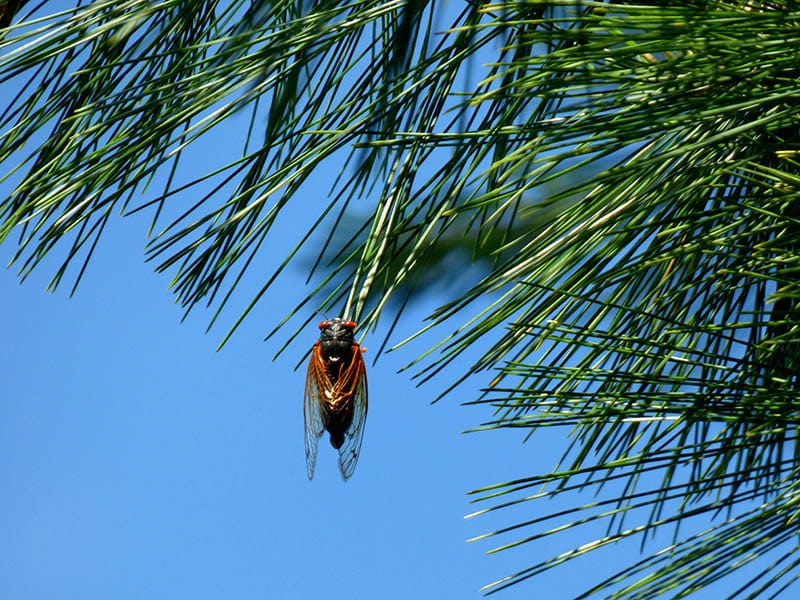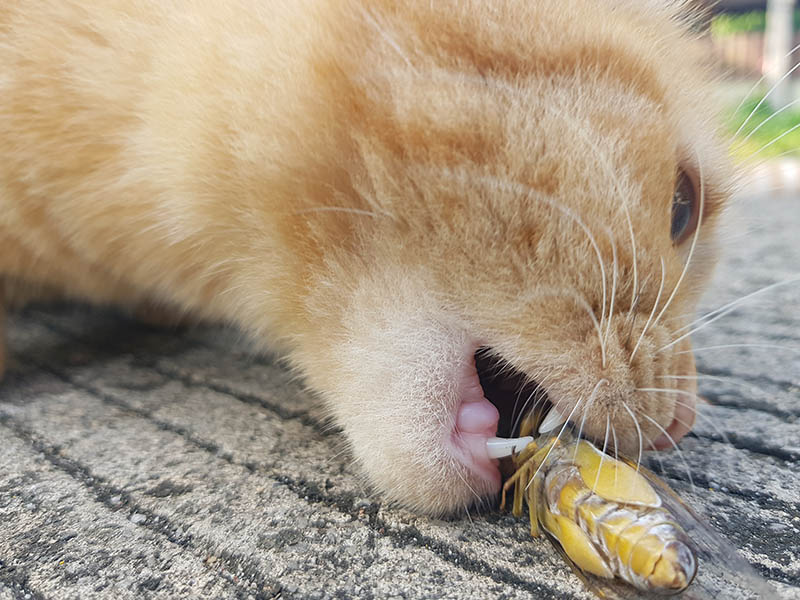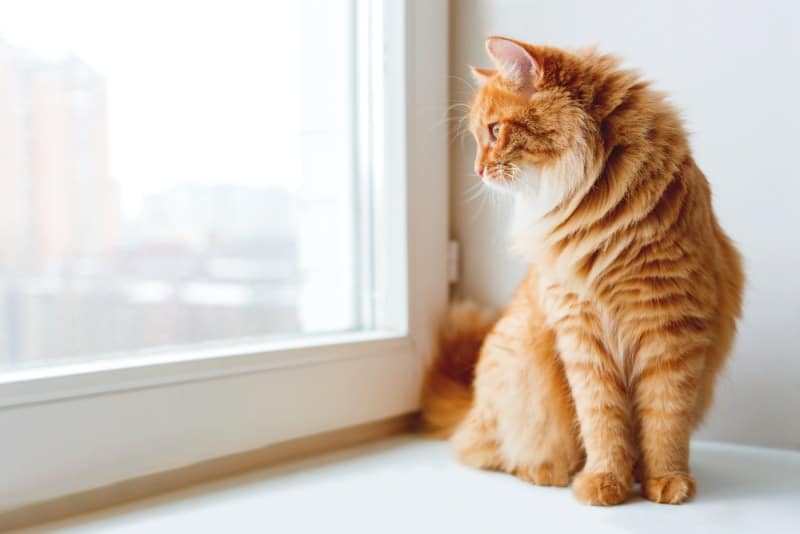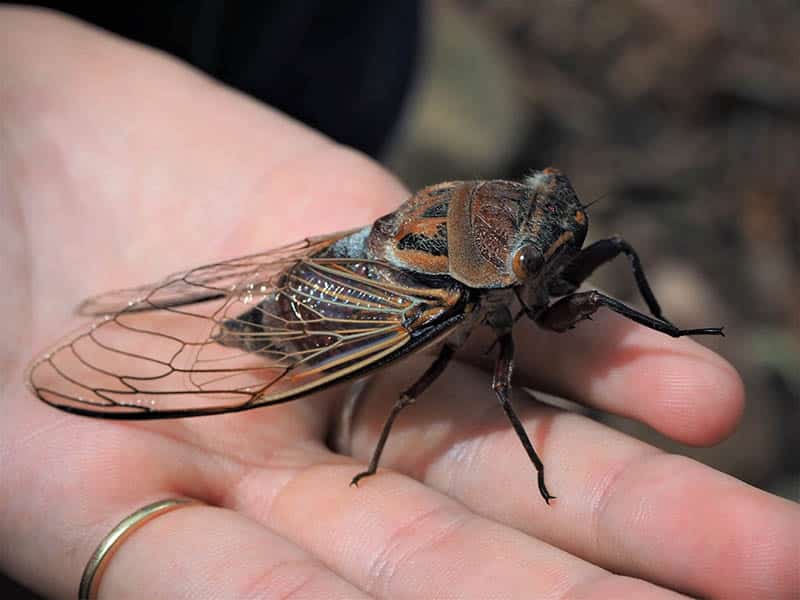Click to Skip Ahead
Any cat owner knows it is not uncommon for their cat to get into whatever they can find. Cats are curious, mischievous creatures that will try to eat anything from dust bunnies to bugs. Sometimes, cats even get into things that harm them. You may be concerned if your cat has eaten a cicada recently. Thankfully, there should be no reason to worry since cicadas are not toxic to cats.
However, it is not recommended that you allow your cat to eat cicadas regularly. Too many cicadas can lead to gastrointestinal issues, so it is best to prevent your cat from eating them. This article will cover the problems that cicadas can cause and offer tips on keeping your cat from munching on them too often.
What Is a Cicada?
Cicadas are flying insects most known for the loud noises they make during the summer season. There are over 3,000 species of cicadas, and they are spread across the world (except Antarctica).
There are annual cicadas and periodical cicadas. Annual cicadas are active from June to August. These cicadas are often black, green, or brown and are slightly under 2 inches long. The periodical cicadas are only found in regions of North America. They are black and are slightly smaller than the annual cicadas.
Cicadas do not sting or bite but have a tough exoskeleton that protects them.

The Zombie Fungus
As frightening as it may sound, the zombie fungus is not dangerous to your cat or yourself. An infection plagues 13 and 17-year periodical cicadas called Massospora cicadina, otherwise known as the zombie fungus.
Cicadas are the hosts of the fungus, and its life cycle is dependent on them. The fungus infects the cicada when it is underground. Once the cicadas emerge, the fungus fills the insect’s abdomen with spores, eventually breaking off the lower segments of the body. Amazingly, this does not kill the cicada, and the insect continues to fly around and infect other cicadas.
Cicadas Can Cause Stomach Issues
Eating a few cicadas occasionally should not cause your cat any harm. However, some gastrointestinal issues may arise if your cat frequently eats cicadas. Anything that is not a consistent part of your cat’s diet can cause gastrointestinal issues.
It isn’t recommended that you make cicadas a part of your pet’s regular diet. It may be possible for cicadas to cause an allergic reaction in your cat. This includes swelling, hives, and itching for a minor reaction. Your cat may experience vomiting, diarrhea, and a fever in more severe reactions. If your cat displays any of these issues, immediately take them to the vet.
While gastrointestinal distress may result from eating cicadas, it is not likely that your cat has eaten only one.

The Sharpness of the Cicadas May Hurt Your Cat
Beyond the gastrointestinal discomfort that cicadas can cause, there is another concern about eating cicadas. The hard, sharp parts of the cicada’s exoskeleton may cause damage to your cat’s digestive tract.
This can lead to gastrointestinal complications. So, while cicadas are not toxic, they can cause other health concerns that make them incompatible with your cat.
Avoidance
It is difficult to avoid insects due to their size and ability to fly and crawl. If there is a cicada emergence near your house, keep your cat indoors and keep doors and windows closed.

Conclusion
Overall, the best way to ensure that your cat maintains a strict no-cicada diet is to keep a close eye on them. Although cicadas are not toxic to cats and generally will not cause adverse reactions, there is still a chance that complications may arise. If you notice any strange signs in your cat that you suspect may be related to eating cicadas, reach out to your vet right away.
Featured Image Credit: Deb Down, Unsplash










